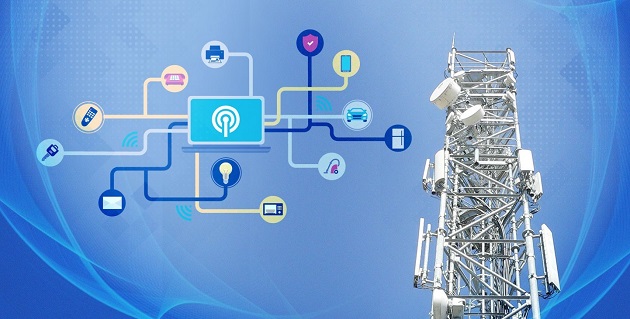By Dr. Karnika Seth, Cyber law Expert & Founder, Seth Associates law firm, India
Accredited Arbitrator Federation of Integrated Conflict Management & Member, World Law Alliance
Country Chair, G 100 -Artificial Intelligence, Data & Cybersecurity
The Draft Indian Telecommunication Bill, 2022, recently issued by the Department of Telecommunications, Government of India, aims to consolidate three separate acts that currently govern the telecommunications sector – the Indian Telegraph Act, 1885, the Indian Wireless Telegraphy Act, 1933, and the Telegraph Wires (Unlawful Protection) Act, 1950. While Digital India certainly needs a new Telecom law to stay abreast of technological needs of current times, it is pertinent to note that in an era of convergence distinction between conventional telephony services and internet based services have dwindled and merged into one digital ecosystem. A practical example of this is usage of a smart phone and use of OTT services. Information Technology as a sector working in silos with a different set of laws from a Telecommunication sector does not appeal to my reasoning and is neither logical nor pragmatic anymore. In my considered view, therefore, there is a strong need to draft a new Telecom law that does not overlap nor duplicate the current laws of information technology in the country but supports or supplements it harmoniously.
- Overlaps with IT Act, 2000- There is a significant overlap with IT Act, 2000 as far as offences such as unauthorised access to a system and power to intercept a network is concerned. Both IT Act, 2000 and the Telecom bill being a special law, contain overriding law provisions. This needs close attention of interpretation and applicability particularly where a smart phone may be used to commit an internet based crime.
- OTT Regulation: Over-the-top (OTT) communication services such as WhatsApp, Signal, and Telegram are proposed to be included in the definition of ‘telecommunication services’ in the bill. It places requirement of a licence to operate an OTT service which does not even use telecommunication equipment and networks. As on date, while telecom providers require a licence to provide voice/video and such communication services, OTT platforms do not such licence to operate. Moreover, OTT platforms are already governed by the IT Act, 2000 and include social media companies. Increasing the regulatory load is likely to stifle innovation in the OTT segment. It may infact turn counterproductive to India’s approach on liberalising Telecom Industry apart from deviating from its earlier adopted stand on Net neutrality!
- New technologies not addressed-Whereas the Bill replaces the obsolete technological concepts under the existing telecom law such as “telegraph” and “telegraph officer” and introduces new definitions to make the law relevant to new digital and futuristic tech times, it fails to mention Artificial Intelligence and Machine learning, Metadata, blockchain and other new technologies in its proposed bill.
- Privacy concerns -While the new Telecom bill proposes every entity offering telecom service must verify user’s identification details and flash the name of a person who sends a message or calls another person. This will entail invasion of privacy of a user who uses a telecom service but wants his identity to remain confidential akin to use of a Virtual Private Network or other privacy protection technique. To weed out cyber criminals is a well-intended objective but one needs to remain mindful of protecting one’s right to privacy aswell. As the nine-judge bench of the Hon’ble Supreme Court of India held in the Justice K.S Puttaswamy v UOI case, the right to privacy is a fundamental right of every citizen of India. The bill also does not throw light on which form of KYC is being proposed for such user verification and leaves lacunae it must fill. Currently, most social media platforms weed out fake accounts and also maintains details of users, however their name does not flash when a user messages or calls another user. As data protection legislation is still underway, and India has more than 117 crore telecom subscribers, introducing such requirements puts sensitive user data also at risk.
- DND Registry- There are no specific provisions provided for an effective execution of the DND register as regards user protection. As the earlier attempts to maintain such Registry and blacklist telecallers has failed, it is important to lay down framework on how this will be achieved in the new Telcom law.
- Interception-There is also a significant overlap with the IT Act,2000 as far as power to intercept is concerned. Both IT Act and the Telecom bill being a special law, contain overriding law provisions. Clause 24(2) of the bill seeks to include certain safeguards through the ‘public safety’ and ‘public emergency’ provisions. Power of interception is already covered by Section 69 of the IT Act, 2000 but does not allow ‘public safety’ and ‘public emergency’ as a ground unlike the proposed bill. In absence of definition of such terms, the Section is prone to subjective interpretation as cyber attacks on protected systems and critical infrastructure can also considered to be a threat of ‘public safety’.
- Cybersecurity-India is in process of culling out new Cybersecurity policy, it is thus pertinent that Telecom bill addresses those challenges too. As Telecom infrastructure is deployed for many critical tasks and handles sensitive data, risk to such data is imminent and needs to be addressed also in the Telecom bill. Moreover, liability of Telecommunication service providers will largely overlap with liability of Intermediaries under the IT Act, 2000 and though intermediaries are exempted from certain liabilities under Section 79 of IT Act, 2000, no such exemption clause is proposed in the Telecom bill. This places enormous compliance burden on OTTs which is likely to stifle competition and growth in the OTT Sector.
The Draft Indian Telecommunications Bill, 2022 is a progressive initiative, however, it needs to avoid duplicity and adopt a more wholistic standpoint in regulating telecommunications due to its apparent significant overlap with information technology and new and emerging platforms. Both the IT Act, 2000 and the bill being a special law contain overriding law provisions. The two laws will have to be examined with a closer lens and necessary changes to the bill ought to be made to avoid inconsistencies and duplication. Though the Telecom bill aims to repeal the archaic telecom laws in the country such as Indian Telegraphy Act, 1885 and seeks to introduce technologically neutral provisions but it needs to remain mindful of principles of net neutrality!







